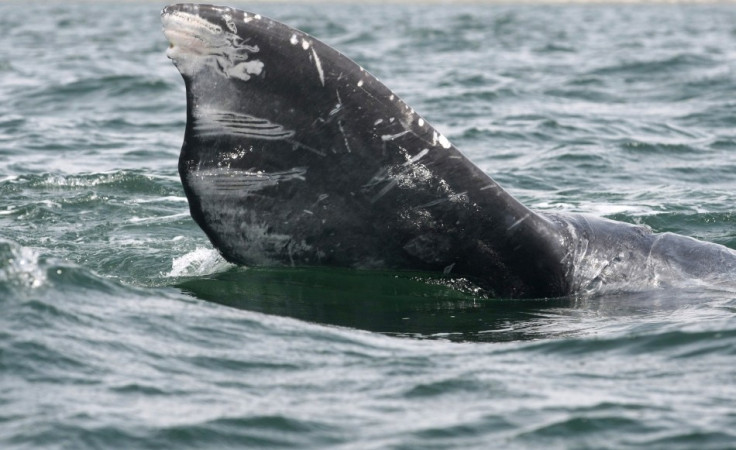Gray Whales threatened by oil survey, the IWC says

The western population of gray (or grey) whales is one of the most threatened group of cetaceans on the planet, with only about 130 remaining, including an estimated 26 breeding females, and a small area near the Sakhalin coast is their only known feeding ground but efforts to protect are still insufficient, scientists warn.
The International Whaling Commission's (IWC) scientific committee recommended that "appropriate monitoring and mitigation plans" should be implemented for oil and gas exploration in the area.
The commission also called for companies to work with independent scientists to "co-ordinate seismic surveys and other noise producing activities", in an attempt to protect the Gray Whales from further declining.
Seismic surveys can prove particularly dangerous for the whales as they require the use of underwater sound at intensities that can force whales out of the area nearby, and can damage their hearing.
It is not the first IWC appeal as last year, following the organization's meeting a group of 12 countries sent a letter to the Russian Ministry of Natural Resources and Environment urging the postponement of a major survey for at least a year.
However, despite the plea, the survey, for a local branch of the giant Rosneft Corporation, went ahead.
Observers from non-governmental organisations are wary of the methods that corporations use when surveying and many activists insist that some of the firms do not always stick within rules aimed at minimising impacts on whales.
One of the most common practise for example are staff detonating the seismic guns at night, while knowing that ships are unable to see whether whales are close by.
Moreover, whales were also reported to come in smaller groups to the feeding area in days immediately following the surveys.
Despite last year's setback, at this year's IWC meeting, the US and UK were among governments expressing concern about the situation and asking Russia to take tougher action.
And Belgium's delegate Alexandre de Lichtervelde said plans for expanding infrastructure at the site were premature.
"We are concerned that one of the companies (Sakhalin Energy) has announced a plan for a new oil and gas platform offshore," he told the meeting.
"That is happening while the full impact of events in 2010 have not been fully assessed."
Valentin Ilyashenko, leader of the Russian delegation at the meeting , said all oil and gas projects had to go through an impact assessment; but some effect on the whales could not be avoided.
"Human activities do influence the western gray whale; our task is to minimise the impact from human activities," he told BBC News.
"But we can't stop [human] progress, and we can't stop using oil."
© Copyright IBTimes 2025. All rights reserved.





















